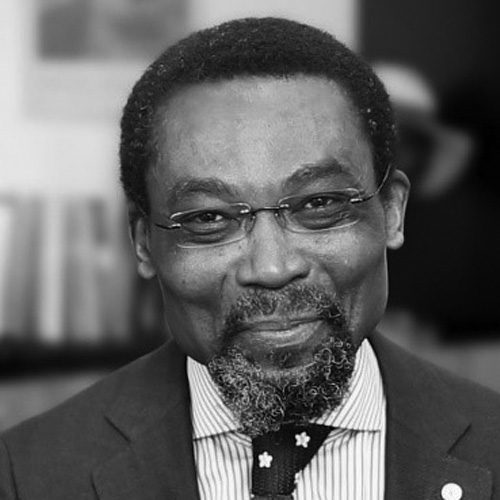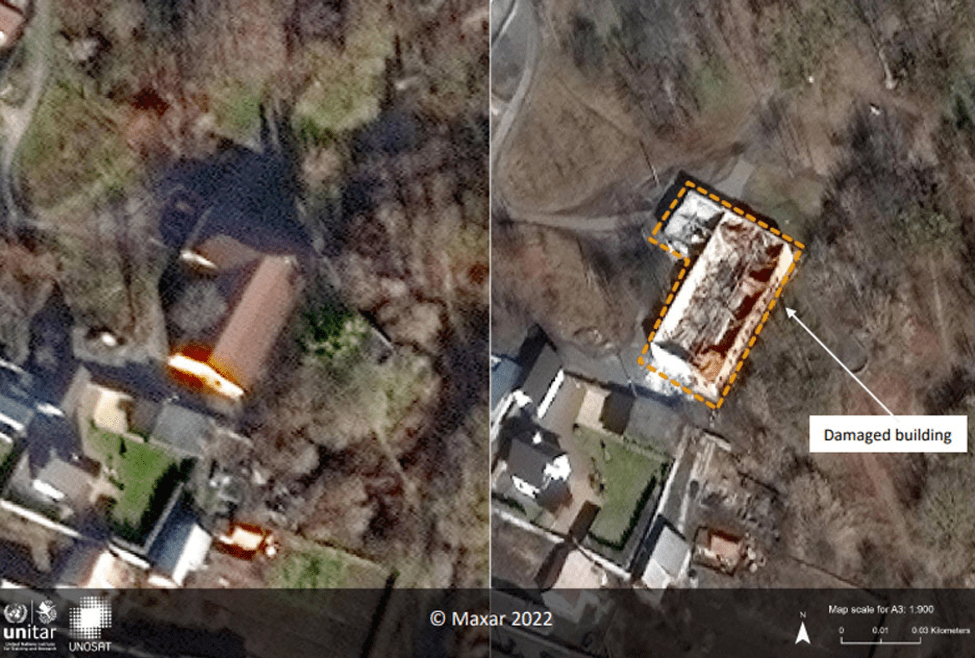By: Chile Eboe-Osuji
Accountability
In a development that some have described as unusually bold—but which some (myself include) saw only as a matter of time—the judges of the International Criminal Court have issued an arrest warrant against Russia’s President Vladimir Putin and one of his ministers for the war crime of deportation or unlawful transfer of people (notably children) from Ukraine to Russia.
In a sense, that particular development has overtaken the debate about its own boldness or inevitability. It is reasonable, of course, for the average person to ask whether Mr Putin would ever be brought to trial at the ICC given the obvious stature of power that he enjoys in the international community. That, of course, remains to be seen.
The eventuality of his prosecution can, however, reasonably actualise a winning wager. This is because no head of state or head of government has ever escaped eventual prosecution—once indicted—in the modern era of international law. That was the fate of Colonel Théoneste Bagosora (who was the effective head of state of Rwanda during the Rwandan Genocide following the death of President Juvenal Habyarimana in a plane crash), Mr Jean Kambanda (the Prime Minister of Rwanda during the genocide), Mr Slobodan Milosević (the President of Serbia), and Mr Charles Taylor (the President of Libera). They were all prosecuted before an international criminal tribunal (Milosević died while on trial). Towards the end of World War II, the Allies had Adolf Hitler (the German Fuhrer) in their sight for criminal prosecution. He escaped that fate by the simple strategy of committing suicide. But his successor as Germany’s head of state, Grand Admiral Carl Dönitz, was prosecuted before the International Military Tribunal at Nuremberg, in the same way that Colonel Bagosora was later tried before the International Criminal Tribunal for Rwanda.
One must go back 104 years to find a case where a head of state was indicted but not ultimately prosecuted. This was the case of Kaiser Wilhelm II, Emperor of Germany and King of Prussia during World War I. He was certainly one of the—if not the—world’s strongest man of his own era. At the end of the Paris Peace Conference of 1919, he was “publicly arraigned” for trial, in the terms of Article 227 of the Versailles Treaty. Alas, he was never tried because he had received asylum in the Netherlands on the eve of WWI’s armistice. The Dutch refused to surrender him to the Entente States for his trial pursuant to Article 227 of the Versailles Treaty. He lived out the rest of his life in asylum in the Netherlands.
Some observers have rued the Dutch refusal to surrender the Kaiser for trial. In my view, however, international law was on the side of the Dutch government on that question. This is because the Netherlands was a neutral country during WWI. As such, the spirit, if not the terms of the 1907 Hague Convention No 5 (respecting the Rights and Duties of Neutral Powers and Persons in Case of War on Land) afforded the Dutch an eminently reasonable basis to decline to surrender the Kaiser. This is no occasion to elaborate on the point.
Be that as it may, the “public arraignment” of the Kaiser in Article 227 of the Versailles Treaty, was the first spectre of the new genie of accountability for international crimes that WWI unleashed for even the most powerful heads of state who inflict wars of aggression upon humanity. Until WWI, international law permitted states to do just that if they were strong enough to do so. Aggressors only needed to worry about the resolve of other states—usually led by the United Kingdom—to muster military opposition as an exercise in the balance of power doctrine. There was no legal consequence that aggressors needed to worry about.
WWI changed that calculation. That change was announced in earnest by the political leadership of the United Kingdom and France. To that end, for instance, Sir F E Smith KC, the Attorney-General of England (the future Lord Chancellor Birkenhead), communicated the resolve of his government on 6 November 1918:
“To us it seems that the most effective deterrent of all is that for all ages men who are tempted to follow the wicked and the bloody path which the Governors of the Central Empires have trodden during the last four years, shall have present before their eyes, not a picture merely of the brilliant and meretricious glamour of military success, but also the recollection that in this great conflict punishment attended upon crime.”
Similarly, his political boss, Prime Minister David Lloyd George, insisted that “rulers who plunge the world into all this misery ought to be warned for all time that they must pay the penalty sooner or later.” Therefore, he insisted, the Kaiser “ought to stand his trial.” Lloyd George was not perturbed by the fact that up until then, there was no precedent for the prosecution of a head of state as a matter of international criminal law. “With regard to the question of international law,” he said, “well, we are making international law, and all we can claim is that international law should be based on justice.” That declaration epitomised the reform of international law that the British and French governments were leading, when they insisted that leaders who would in the future unleash wars of aggression must be held accountable in international criminal law.
In the arrest warrant that the ICC has issued against Mr Putin, a preeminent global strong man of the modern era, the genie of accountability is clearly coming almost full circle. To truly come full circle, it is not enough to prosecute him for war crimes. He ought also to be prosecuted for the crime of aggression. It will truly send that message that Lord Birkenhead and Mr Lloyd George were keen to communicate at the end of WWI in relation to the accountability of the most powerful leaders who embark on wars of aggression.
Immunity
There may be those who may wonder whether Mr Putin enjoys immunity in international law before the ICC or any other international tribunal. That question is comprehensively answered in an upcoming article of mine that will soon be published by the Journal of International Criminal Justice, titled “International Law Rejects Immunity for International Crimes: Full Stop.” An early version of the piece is attached here.
Loss of Belligerent Rights
In a related development, I have another article coming up in the next issue of the German Yearbook of International Law, titled “Rethinking Military Necessity in Wars of Aggression.” I argue in that piece, that the Russian forces are not entitled to the claim of military necessity when they attack civilian residential blocks and flatten them on consideration that they were being shot at from those places in Ukraine. This is because Russian forces are embarked upon an illegal, nay, criminal war in Ukraine. Legal rights do not arise from criminal conduct, in a way that benefit those who are engaged in that criminal conduct.
Indeed, the logic of that reasoning has these two further implications: (i) Ukrainian officials, soldiers or citizens are not legitimate targets for Russians in this war of aggression. In other words, Russians are not entitled to target the President of Ukraine or any other Ukrainian citizen including Ukrainian soldiers. To do so will anchor a charge of murder (for any resulting death), attempted murder or assault (if no death occurs); and, (ii) Russian soldiers captured in Ukraine are not entitled to prisoner of war (POW) status. This does not mean that Ukrainians are entitled to treat them inhumanely. It only means that Russian soldiers can be prosecuted for murder, attempted murder, assault, and unlawful destruction of property. It is true that foot soldiers or field commanders may not be prosecuted under the Rome Statute for the crime of aggression. But that is a different question. That question does not prevent the prosecution of those who launch and fight wars of aggression for the crimes of murder, attempted murder, assault and wanton destruction of property—for every death, injury or destruction of property resulting from their participation in the war of aggression.
Conclusion
It is by pursuing the prosecutorial strategies outlined above can the world truly begin to realise the benefits of what it means to say that wars or aggression are illegal in international law.

Chile Eboe-Osuji was the President of the International Criminal Court from 2018 to 2021. He is the Distinguished International Jurist and Special Advisor to the President at Toronto Metropolitan University; Paul Martin Senior Professor at University of Windsor; Visiting Professor, University of California Los Angeles School of Law, formerly Distinguished Visitor, University of Toronto Law Faculty; formerly Herman Phleger Visiting Professor of Law at Stanford Law School; and, formerly Senior Fellow, Carr Center of Kennedy School, Harvard University.







